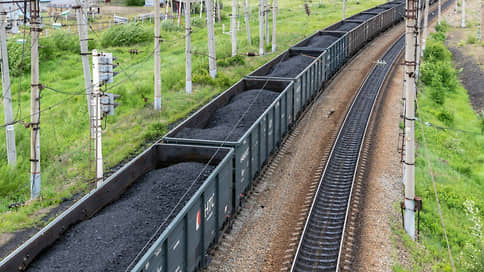Deliveries of coal from Kazakhstan to Russia in January-May decreased by 16%
[ad_1]

Russian coal companies, having increased supply on the domestic market, are gradually ousting Kazakh traders from it. Deliveries of coal from Kazakhstan to Russia in January-May decreased by about 16%. Instead, Kazakhstan is increasing exports to Europe, Turkey and the countries of Central Asia. At the same time, the transit of coal from Kazakhstan through Russia is maintained, although Kazakh exporters face problems in deliveries to Europe if they transship coal in Russia.
Kazakhstan is reducing coal supplies to Russia due to an increase in supply in the domestic market from local producers. According to the Bureau of National Statistics of Kazakhstan, from January to April 2023, exports to the Russian Federation amounted to 5.5 million tons, which is 19.8% less than the same period last year. A Kommersant source among exporters said that railroad deliveries of coal from Kazakhstan to Russia, excluding transit to non-CIS countries, decreased in January-May by about 16%, to 7.4 million tons.
Turar Zholmagambetov, deputy chairman of the Industrial Development Committee of the Ministry of Industry and Infrastructure Development of Kazakhstan (MIIR RK), told Kommersant that Russian coal companies offer their coal on the domestic market at low prices. “I believe that this is the result of the fifth package of sanctions against Russian coal. The Russian Federation exported about 50 million tons of coal to Europe, which accounted for almost a quarter of all solid fuel exports. Russian players actively redirected this volume at a discount, including to the domestic market,” he said.
Despite the decline in deliveries to Russia, key long-term contracts between Kazakh mines and Russian consumers have been maintained and are being carried out as planned, Mr. Zholmagambetov noted. According to him, mainly traders have reduced exports to the Russian Federation.
Kazakhstan replaces the Russian market with deliveries to Eastern Europe, Turkey and the countries of Central Asia. According to Turar Zholmagambetov, exports to Latvia increased by 368 times (up to 1 million tons in January-April), by 80.5% – to Poland (950 thousand tons). Deliveries to Turkey increased by 560% (up to 519.5 thousand tons). Kazakhstan increases deliveries to neighboring Kyrgyzstan (by 19%, up to 358.4 thousand tons) and Uzbekistan (by 2.8 times, up to 255.3 thousand tons). “A number of Kazakhstan’s leading players are working on new contracts for the export of coal to border countries up to 15 million tons per year. Deliveries will start in 2025,” said Mr. Zholmagambetov.
Russia is an important transit destination for Kazakh coal when it is delivered to Europe. Due to the European embargo on Russian coal, Kazakh suppliers face certain problems. So, if coal from Kazakhstan goes to Europe by rail without reloading along the route on the territory of the Russian Federation, then there are no questions. But if coal from Kazakhstan on its way to Europe is reloaded on the territory of the Russian Federation (for example, in seaports) and at the same time the vehicle is changed and a new transportation document is issued, then when coal is imported into the EU, this leads to a thorough check of the origin of coal by the customs authorities of the country import, says Turar Zholmagambetov. Until such verification is completed, the customs authorities may restrict cargo and commercial operations with such coal. As a result, large European consumers refuse to buy Kazakh coal, which is transshipped in Russian seaports.
The prospects for the supply of Kazakh brown coal to the Russian market are inextricably linked with its consumption by Russian power plants – for example, Reftinskaya GRES – which will not decrease in the coming years, says Danil Tokmin, a partner at the consulting company Neft Research. “There is also a technological dependence of power plant equipment on a specific brand of coal, and long-term contracts concluded between coal companies and owners of power facilities,” he notes. Prospects for the supply of Kazakh D grade coal depend more on the availability of an export alternative: for example, shipments of coal from the Shubarkol Komir resource to Russia have recently shrunk by almost ten times, since they were redirected mainly to Poland.
[ad_2]
Source link





